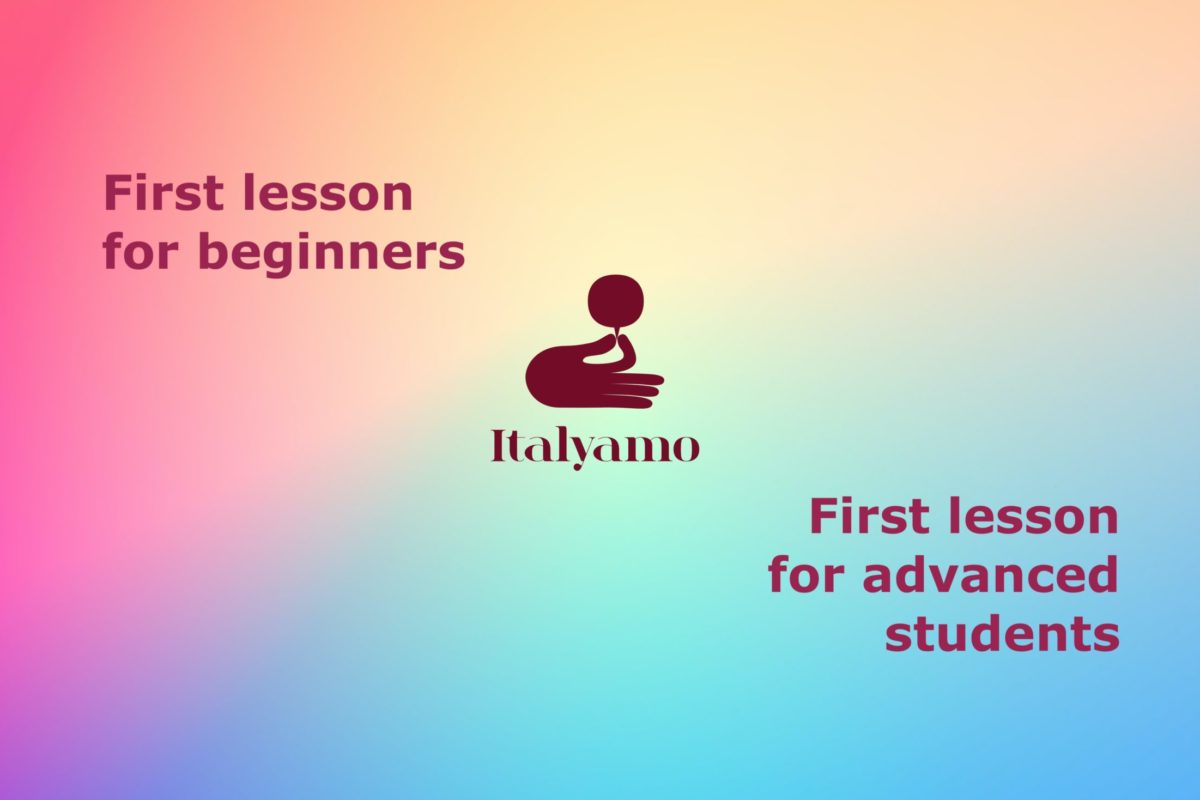Today we decided to offer you a taste of lessons. Both absolute beginners and advanced students. Choose your level and work with Italyamo : )
First lesson for beginners
Ciao a tutti! Io mi chiamo Valentina. E tu, come ti chiami? Io sono italiana. Sono di Milano e vengo dall’Italia. E tu, di dove sei? Da dove vieni? Sono insegnante e ho 40 anni. E tu, che lavoro fai? Quanti anni hai?
These are the classic first words of an Italian lesson at the absolute beginner level. What do you think? Can you answer the questions?
To say your name, there are several possibilities: ‘Io mi chiamo’ or just ‘Mi chiamo’ or ‘Sono’ plus your name. To pronounce correctly your name, see our video on alphabet! Instead, to say your nationality, your city of origin or the country where you were born, you can use: ‘Sono’ plus the adjective of your nationality or ‘Sono di’ plus the name of your city. For the country ‘Vengo da/dall’/dalla/dal’ plus your country. See our videos on ‘Essere’, ‘Avere’ and adjectives. To say your profession you can still use ‘Sono’, while to express your age you must use ‘Ho’. For numbers we have a wonderful video : )
And now watch our free video ‘Presentarsi’ here!
First lesson advanced students
Generally the first lesson of an Italian course for advanced levels is an informal test that helps the teacher to understand where to start. Do you want to try it?
Guarda il video della canzone di Fabri Fibra ‘Stavo pensando a te’. Di che cosa parla la canzone?
Il titolo della canzone contiene una forma verbale italiana che usiamo per parlare di un’azione in progressione. Come si forma? Nel ritornello ‘Stavo pensando che non avremmo dovuto lasciarci’ perché usa il condizionale composto? ‘Non bere troppo’ che modo è? A che cosa serve? ‘forse dovrei dimagrire’ qui il condizionale semplice perché è usato? Ecco un altro esempio ‘vorrei stare zitto’. Qui ha la stessa funzione? Nella canzone troviamo spesso il verbo ‘pensare’. In italiano quando usiamo questo verbo dopo è possibile trovare il congiuntivo. Perché nella frase ‘penso d’essere sobrio’ non c’è?
Nella canzone abbiamo anche alcuni ‘modi di dire’. Quali? Il testo presenta anche delle espressione dell’italiano dei giovani. Sai che cosa significano le parole ‘figata’ e ‘frate’? Per quanto riguarda i riferimenti culturali, che significa il verso ‘Quante ragazze, frate colpo grosso’?
If you want to know the answers or just have a chat together, contact us!


